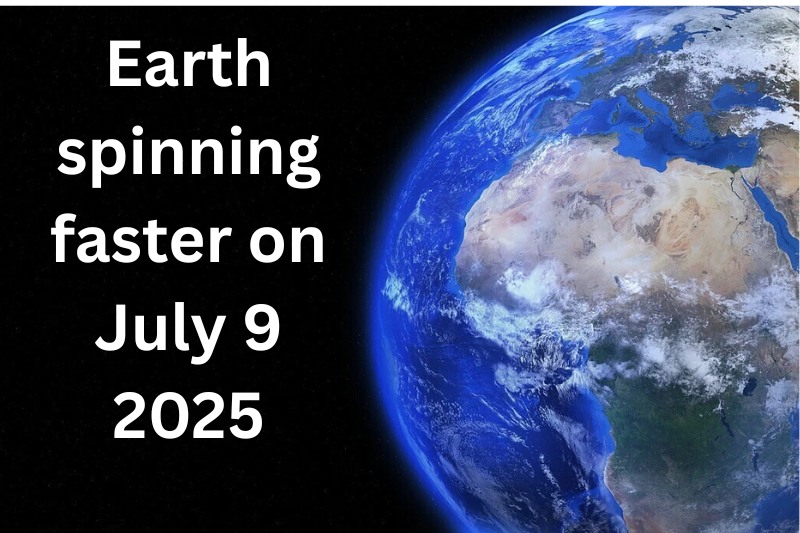
In an extraordinary development, July 9, 2025, recorded the shortest day ever since atomic clocks began precise timekeeping in 1960. According to global time observatories, Earth completed its rotation 1.3 to 1.6 milliseconds faster than the standard 24-hour day.
Though seemingly imperceptible, this accelerated spin has triggered widespread attention in the scientific community, raising questions about long-term trends in Earth’s rotation and the potential need for a rare “negative leap second.”
Atomic clocks—used for everything from GPS systems to global financial networks—depend on precise measurements of time aligned with Earth’s rotation. A shortening of even a millisecond can disrupt time-sensitive technologies and requires adjustment.
“While humans won’t feel a few milliseconds, systems like satellites and stock exchanges demand perfect synchronization,” explained Dr. Neha Kapoor, a timekeeping researcher at the Indian Institute of Astrophysics.
Scientists point to a combination of natural and astronomical factors. One of the main contributors is the Moon’s elliptical orbit. As the Moon shifts farther from Earth’s equator, its gravitational pull decreases, causing Earth to spin slightly faster, much like a figure skater pulling in their arms.
Additionally, seasonal mass redistribution, such as melting glaciers, groundwater loss, and vegetation growth, alters the Earth’s moment of inertia. These subtle changes can either slow down or speed up the planet’s rotation.
July 9 isn’t alone. Experts predict similar short-duration days on July 22 and August 5, both expected to be 1.3 to 1.5 milliseconds shorter than average. This consistent trend has strengthened the case for recalibrating global timekeeping systems.
If the trend continues, the first-ever negative leap second may be introduced by 2029, meaning one second would be removed from atomic clocks to align them with Earth’s rotation—a rare and unprecedented move.
Historically, Earth has been gradually slowing down. Over millions of years, tidal friction and geological processes have lengthened the day from 23 hours during the dinosaur era to today's 24 hours.
However, since 2020, data from observatories worldwide has shown a reversal in this trend, with several days running slightly short. Scientists are still studying whether this is a short-term anomaly or part of a new phase in Earth’s rotational behavior.
Experts say there’s no cause for panic. The changes, while significant for precise timekeeping and technology, do not pose immediate threats to human life or daily functioning.
However, as global systems become increasingly reliant on microsecond-level accuracy, scientists stress the importance of monitoring Earth’s rotational speed closely.
The record-breaking short day on July 9, 2025, is a scientific milestone that reflects Earth’s complex and dynamic nature. As researchers continue to track the planet's rotation, the event marks a critical moment in understanding how natural and cosmic forces impact time itself.
Stay tuned as scientists worldwide collaborate to unravel the implications of this high-speed spin.